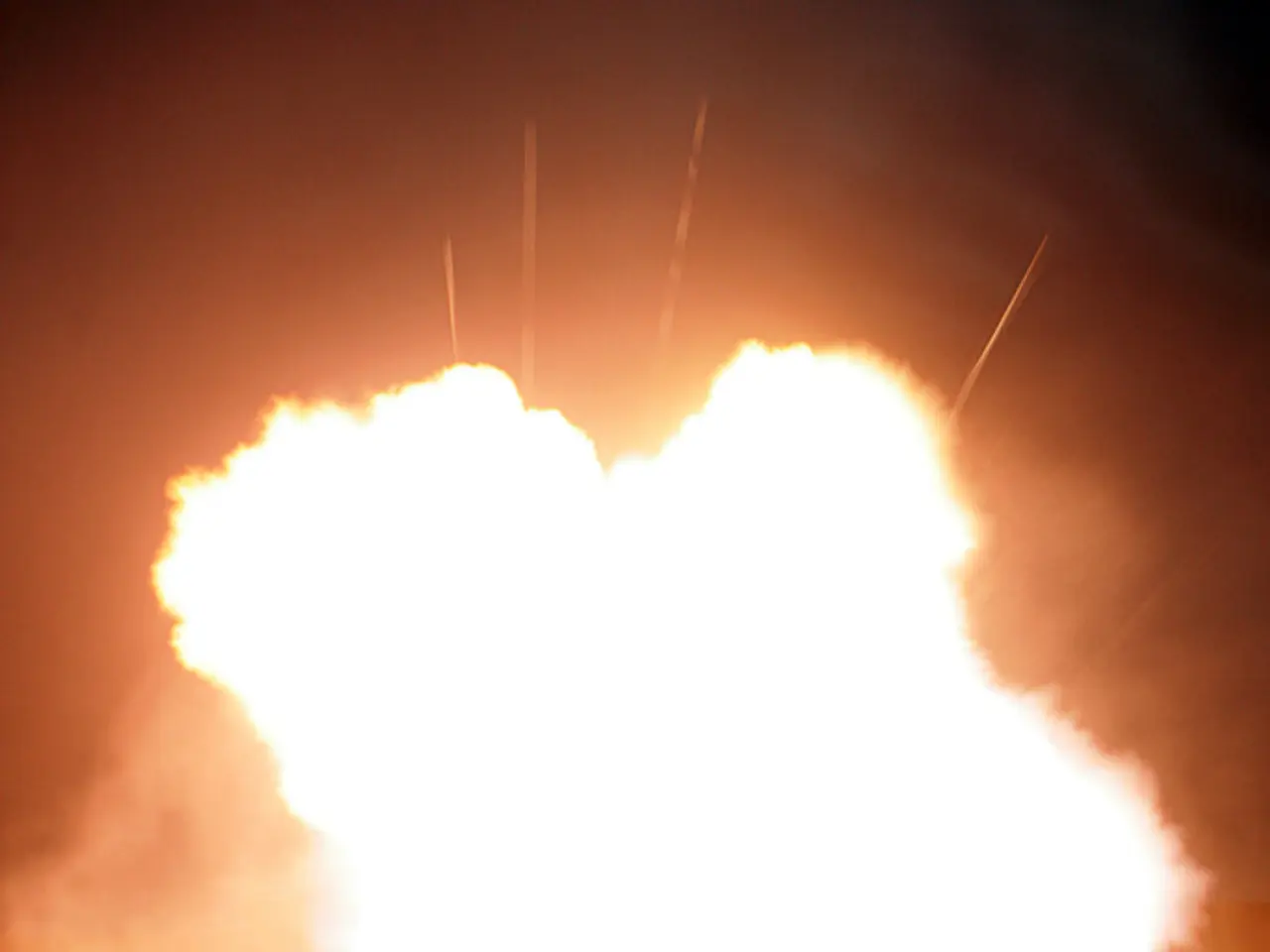International Red Cross Criticizes Airlift as a Last Resort and Advocates for Land-Based Aid Delivery to the Gaza Strip - Airlift for Gaza receives criticism from the Red Cross, who advocates for the deployment of trucks instead as a more viable aid solution.
The German-Jordanian air bridge, announced by Chancellor Friedrich Merz earlier this week, has faced criticism from various international organizations and humanitarian groups, including the United Nations, Red Cross, and Amnesty International. The air bridge, intended to address the long-overdue supply of the population in the Gaza Strip, is seen as a small and insufficient response to the severe humanitarian crisis in the region.
Critics argue that the air bridge is inadequate to end famine or address urgent medical needs, and is instead considered a symbolic action by organizations such as Plan International. The Red Cross has emphasized that humanitarian air drops pose a risk to the population due to the potential for injuries, especially in densely populated areas.
The preferred alternative for aid delivery, according to the Red Cross and other humanitarian organizations, is the establishment of secure land corridors for sustained, safe, and large-scale delivery of food, medicine, and other essential supplies. These organizations advocate for opening crossings to allow convoys of trucks to enter Gaza reliably, rather than relying on limited airdrops.
Petra Berner, chairwoman of children's rights organization Plan International, has criticized the German government's air bridge plans for the Gaza Strip as inefficient, expensive, and life-threatening. Berner states that aid supplies dropped via air bridge would fall uncontrolled to the ground, necessitating the needy to venture into militarily contested areas. She suggests that humanitarian aid trucks, ready at the border, could be allowed into Gaza for distribution via proven systems to those in need, particularly children.
Despite these criticisms, two German transport aircraft are on their way to Jordan, equipped and refueled for potential deployment as early as Wednesday. The air bridge, while considered unlikely to provide sufficient aid supplies, is still viewed by the German government as a contribution they are willing to make in the face of the ongoing crisis in Gaza.
In summary, the criticism towards the German-Jordanian air bridge centers on its inadequacy and limited impact amid Gaza’s severe humanitarian crisis. The preferred alternative for aid delivery, according to the Red Cross and other humanitarian organizations, is the establishment of secure land corridors for sustained, safe, and large-scale delivery of food, medicine, and other essential supplies. The ongoing debate highlights the need for continued advocacy and pressure on Israel and other actors to facilitate effective aid delivery into Gaza.
- Despite the ongoing criticism from international organizations and humanitarian groups, the German government continues to defend its employment policy towards the Gaza crisis, as they deem the controversial air bridge a contribution they are willing to make.
- In light of the severe humanitarian crisis in Gaza, humanitarian organizations are urging for a shift from aerial aid drops to the establishment of secure land corridors, arguing that this tactic would offer sustained, safe, and large-scale delivery of essential supplies, particularly in the context of 'politics', 'general-news', 'crime-and-justice' and 'war-and-conflicts'.






